6.10 Stakeholder meetings
6.10.1 Purpose of stakeholder meetings
The PBAC can convene stakeholder meetings with stakeholders:
- Where there is a submission for a medicine that has not been recommended or deferred. Meetings are allocated by the PBAC for medicines that treat serious, disabling or life-threatening conditions, where there are no other realistic treatment options for that condition, but where insufficient cost-effectiveness prevents PBAC from recommending listing. Stakeholder meetings do not replace pre-submission or post-PBAC consideration meetings between the department and the applicant.
- Where the committee is aware that applicants are preparing to submit major submissions for new and innovative therapies to treat diseases with a high patient and public health burden
- To help inform issues such as the correct place of medicines in treatment regimens, the appropriateness of target populations or choice of comparator.
A meeting of all relevant stakeholders may provide the PBAC and stakeholders with a greater understanding of the issues and suggest ways to resolve some of the outstanding matters.
These meetings provide information, and are not a de facto appeals mechanism.
Stakeholder meetings do not replace pre-submission or post-PBAC meetings between the department and the applicant.
Meetings with stakeholders will not be convened where there is legal action pending, such as a submission to the Federal Court for an extension of time in which to file for a review of a decision.
The applicant may request the PBAC to consider convening a stakeholder meeting. The request should outline how the stakeholder meeting will benefit consideration of the medicine for listing by the PBAC.
6.10.2 Conduct of the meetings
The department may invite the following to stakeholder meetings:
- representatives of relevant organisations, both clinical and consumer-based. Attendees of organisations may not be a legal advisor (internal or external)
- applicants making submissions to list and those with current PBS-listed medicines treating the condition
- individual clinical experts with expertise in prescribing, managing and administering the treatment
- consumers with the disease or condition
Meetings are conducted in accordance with the Secretary’s Instructions for the department. Attendees will be required to complete confidentiality statements and conflict of interest declarations.
The department will set a date for the meeting and locate a venue that is as convenient and timely as possible.
All stakeholders will be invited to contribute items to the agenda. They will receive a list of attendees and organisations that were invited to provide representatives. A complete set of PBAC Minutes and, where relevant, subcommittee advice will be included in the agenda: commercial in confidence information will be redacted where required. The PBAC may also request presentations from the department on use and cost-effectiveness issues. Stakeholders may be invited, or can offer, to present a full range of perspectives for consideration by the attendees at the meeting.
6.10.3 Outcomes of the meeting
The PBAC Secretariat will provide all attendees with a copy of the draft outcomes of the meeting and an opportunity to make comments or changes. The attendees will be asked to ratify the outcomes. Different points of view and different perspectives will be outlined in the outcomes. The attendees are expected to ratify the outcomes within 15 business days of the meeting. Attendees will receive five business days to review, comment on and ratify the outcomes.
The department will publish the outcomes on the PBS website.
6.10.4 Publication of outcomes
Publications resulting from the meeting may include:
- outcomes of the issues discussed at the meeting, conclusions and any actions arising
- a statement of outcomes of the meeting for public release
- formation of a suggested restriction
- formulation of research questions to address information needs identified by the PBAC consideration, such as those that may be used to develop and implement performance-based RSAs or MAPs



